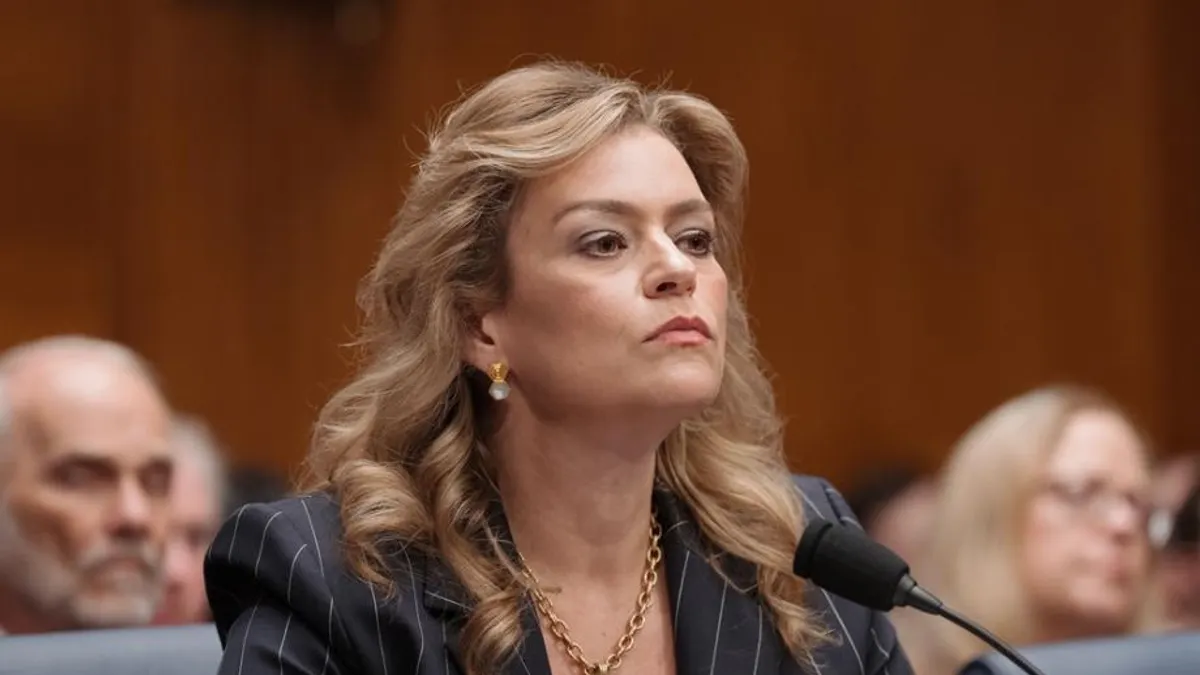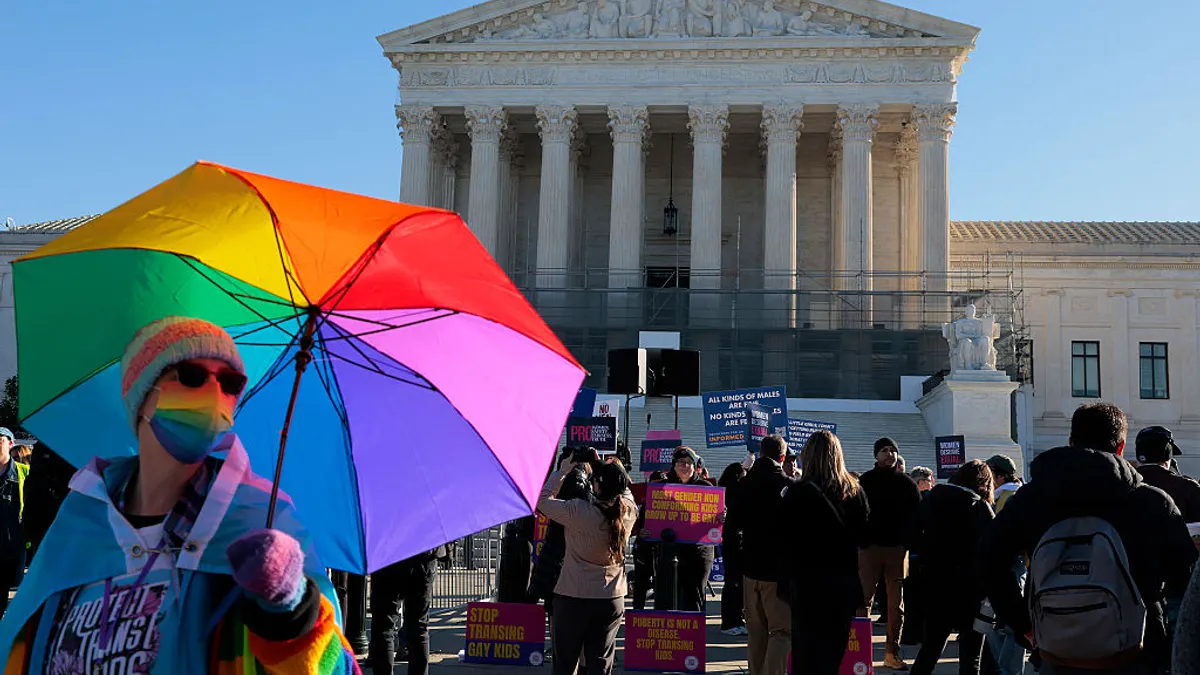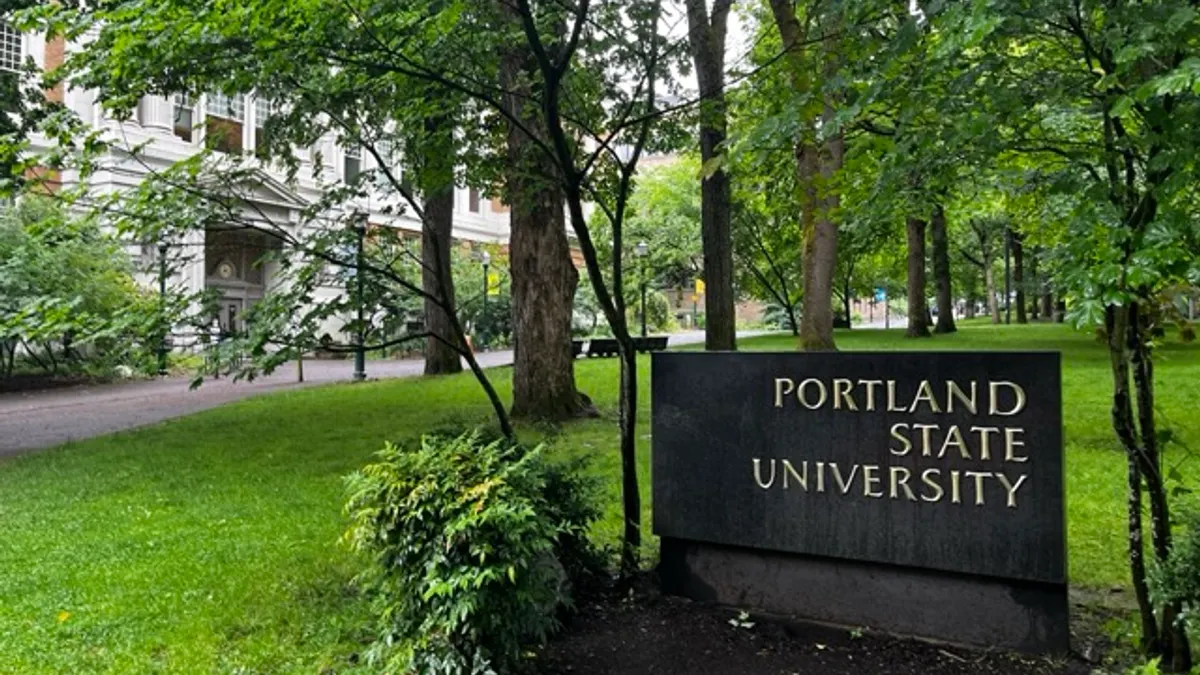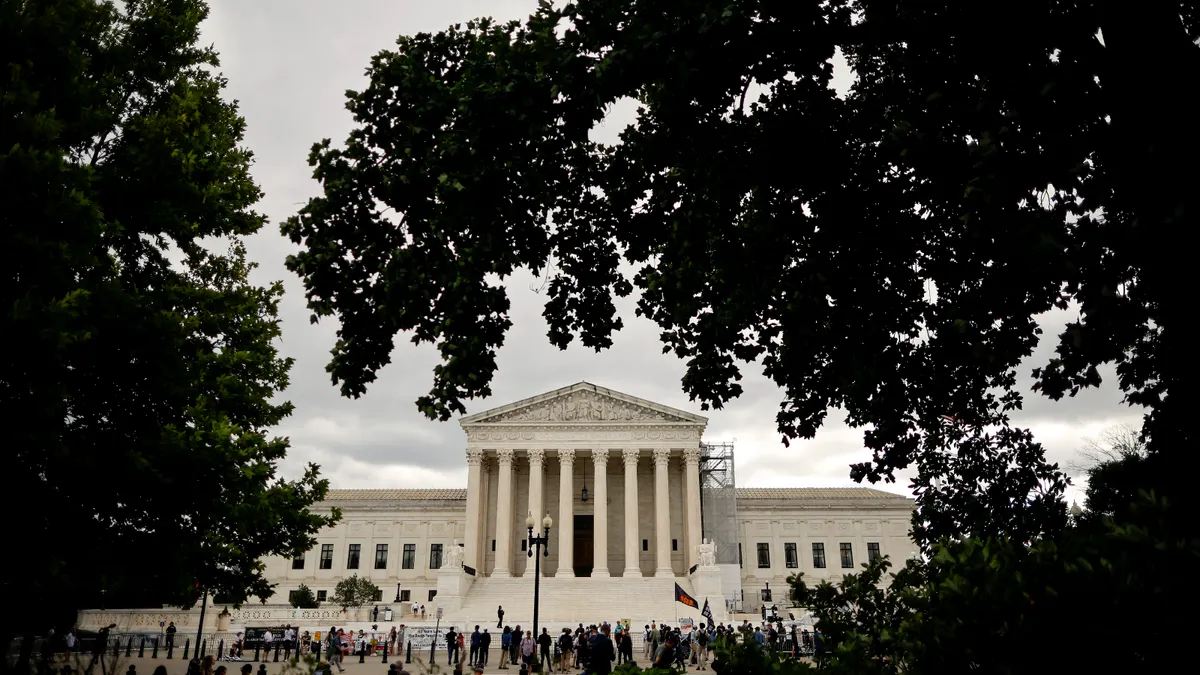Three weeks ago, the Trump administration made an unprecedented offer to nine research universities: get priority in federal grant funding in exchange for adopting sweeping policy changes outlined by the government.
Those conditions include everything from freezing tuition for five years to committing to forcefully breaking up disruptive protests to potentially dissolving academic departments deemed anti-conservative.
Later in October, President Donald Trump appeared to open up the offer to all colleges in a social media post.
By publication time Monday evening, seven institutions had rejected the “Compact for Academic Excellence in Higher Education."
Here’s a look at the compact and how the nine colleges — and the broader higher education community — answered as Monday brought an initial deadline to respond with feedback.
The compact
The administration initially offered the deal to the University of Arizona, Brown University, Dartmouth College, Massachusetts Institute of Technology, the University of Pennsylvania, University of Southern California, the University of Texas at Austin, Vanderbilt University and the University of Virginia.
Its broad conditions for preferential treatment in funding would reshape academic, financial and political policies typically left to college leaders. They included:
- Adopting a policy of institutional neutrality requiring employees, in their capacity as university representatives, to “abstain from actions or speech relating to societal and political events” unless the issues directly affect the institution.
- Committing not to consider race, gender, religion and other characteristics “explicitly or implicitly” in admissions decisions. The administration would grant exceptions for considering religious beliefs and gender at religious and single-sex institutions, respectively.
- Conducting broad, public assessments of the viewpoints of employees and students.
- Changing governance structures and potentially dissolving or taking over units that “purposefully punish, belittle, and even spark violence against conservative ideas.”
- Adopting policies that recognize “academic freedom is not absolute” and prevent “discriminatory, threatening, harassing, or other behaviors that abridge the rights of other members of the university community.”
- Capping international enrollment at 15% of the broader undergraduate body while screening out “students who demonstrate hostility to the United States, its allies, or its values.”
- Freezing tuition for five years.
- Requiring undergraduate applicants to take standardized tests such as the SAT.
- Committing to using “lawful force” and “swift, serious, and consistent sanctions” to handle protests that “delay or disrupt class instruction or disrupt libraries or other traditional study locations.”
Adherence to those conditions would be ultimately enforced by the U.S. Department of Justice. If found to have violated the compact, institutions can lose the agreement’s benefits for at least a year and have to pay back all advanced federal funding from the year of the violation.
‘Nothing less than government control’
Pushback to the compact and its conditions came swiftly from many corners of the higher education and political world.
California. Gov. Gavin Newsom called it a radical agreement and vowed to pull state funding — including a student aid program used by both public and private colleges — from any institution that agreed to it. A pair of Democratic lawmakers in Pennsylvania likewise proposed barring colleges that receive state funding from signing the compact.
At the same time, higher ed groups have sounded alarms about threats to academic freedom.
A recent statement signed by three dozen higher education associations said they were “deeply concerned that the compact’s prescriptions threaten to undermine the very qualities that make our system exceptional.”
They added that the compact “offers nothing less than government control of a university’s basic and necessary freedoms — the freedoms to decide who we teach, what we teach, and who teaches.”
An analysis from the Knight First Amendment Institute at Columbia University concluded that the compact “blatantly violates the First Amendment.”
The U.S. Constitution bars the government “from conditioning benefits — including discretionary benefits to which a recipient has no right — on relinquishing or waiving their constitutional rights, First Amendment or otherwise,” the authors of the Oct. 15 report wrote. “A number of the compact’s provisions contain unconstitutional conditions.”
Chief among those conditions is predicating funding on a set of values chosen by the administration. The authors also highlighted the special protection provided by the compact to conservative opinions. “All viewpoints — conservative, liberal, or otherwise — are afforded the same constitutional protection and cannot be selectively favored or censored by the government,” they wrote.
They further argued that neither federal law nor the Constitution give the executive branch the power to “issue the compact unilaterally as they did.”
An analysis from Frederick Hess of the conservative American Enterprise Institute likewise found “no obvious statutory basis for conditioning access to higher ed funding on a sweeping list of arbitrary demands.” However, Hess argued that “many of the particulars are appealing.”
Meanwhile, the American Association of Colleges and Universities and Phi Beta Kappa Society offered their own alternative compact between colleges and the country based on a handful of principles, including opportunity, affordability, freedom and security.
Responses from the nine
As for those initially offered the compact, seven have rejected it as of publication time: MIT, Brown, Penn, USC, Dartmouth, UVA and the University of Arizona.
The University of Texas System and Vanderbilt did not immediately respond to requests for comment.
The rash of rejections reportedly prompted the administration to hold a meeting Friday with leaders of the remaining universities. U.S. Education Secretary Linda McMahon described a “a positive and wide-ranging conversation” on social media. Three universities rejected the compact after the call.
Many leaders cited academic freedom and autonomy in their rejections.
MIT was the first to turn down the compact. It did so because the administration’s deal “includes principles with which we disagree, including those that would restrict freedom of expression and our independence as an institution,” MIT President Sally Kornbluth said in a letter to McMahon that the university published on Oct. 10.
“And fundamentally, the premise of the document is inconsistent with our core belief that scientific funding should be based on scientific merit alone,” Kornbluth added.
Becoming the sixth to reject the deal, Dartmouth President Sian Beilock wrote in a community message Saturday that the compact “would compromise our academic freedom, our ability to govern ourselves, and the principle that federal research funds should be awarded to the best, most promising ideas.”
University of Arizona President Suresh Garimella said in a community message Monday afternoon that several of the compact’s criteria “deserve thoughtful consideration” and many have already been adopted by the university.
“At the same time, principles like academic freedom, merit-based research funding, and institutional independence are foundational and must be preserved,” Garimella added.
The university also offered its own “statement of principles” such as affordability and freedom of expression. The university also said it would conduct surveys on speech and viewpoint diversity and publish the results.
Arizona’s Democratic governor raised concerns about the compact days before the deadline and described the compact as a bad deal, while the Republican head of the state senate reportedly urged the university to accept the agreement.
Vanderbilt leaders have been relatively quiet about the compact, but students and faculty groups have called on the institution to reject it.
University of Texas Board of Regents Chair Kevin Eltife said early after the compact was offered that the system was “honored” that its flagship in Austin was selected among the nine to receive the offer, though the university system has yet to formally respond.
“We enthusiastically look forward to engaging with university officials and reviewing the compact immediately,” Eltife, a former Republican state senator, said in early October.


















